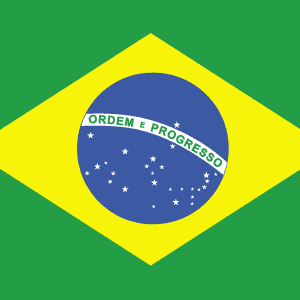While Tehran’s audacious delivery of oil to Venezuela grabbed the headlines, Iran has been discreetly carrying sanctioned petrochemicals on sanctioned ships to Brazil, Venezuela’s neighbor to the south, for well over a year.
On the same day that “Petunia” and “Faxon” docked in Venezuela amid dramatic reports of potential U.S. military intervention, one trade publication flatly announced the departure of yet another cargo of sanctioned Iranian petrochemicals heading to Brazil.
And this latter trade is far more critical to the regime’s survival than a fleeting propaganda win over the White House.
A single delivery of 1.5 million barrels between two American antagonists has only short-term symbolic value, and the Iranian regime — like the Nicolas Maduro regime — cannot survive on an intermittent diet of symbolism and anti-imperialist rhetoric alone.
Iran needs regular income, and since the U.S. withdrawal from the Iran Nuclear Deal in 2018, it has sought to soften the blow of oil sanctions by securing new markets for petrochemicals — its second most lucrative export. Brazil (and other similar markets) are critical to Iran in a way that Venezuela simply is not.
From at least April 2019, sanctioned Iranian tankers have carried sanctioned Iranian urea to the southern Brazilian ports at Imbituba, Paranagua, and Sao Francisco Do Sul. After a Fall/Winter pause, the trade resumed in February and continues to this day.
For instance, the sanctioned Islamic Republic of Iran Shipping Lines vessel “Daryabar” arrived at Imbituba on June 2 to deliver urea from Assaluyeh. While many other countries could supply the same petrochemicals, the large risk-offsetting discounts attached to the Iranian cargos are proving irresistible to Brazilian importers in spite of the sanctions risks.
The trade-route has not attracted a great deal of notice, and Iran’s Foreign Minister Javad Zarif would like to keep it that way. We will certainly not see him crow about a successful offload in Brazil, as he and Revolutionary Guard officials crowed about Venezuela.
Zarif knows that drawing attention to this discreet operation will guarantee the fast-track of an American counter-strategy, just as the United States has already swiftly and successfully acted to hamper future Iran-Venezuela oil trade with new sanctions threats against foreign ship operators.
To successfully implement its “maximum economic pressure” strategy in order to compel fundamental regime behavioral change (or failing that, “regime collapse”), the United States should work with Brazilian authorities to shutter the operation.
Given excellent ties between two staunch allies, including the personal ties between presidents Jair Bolsonaro and Donald Trump, this should be relatively painless.
For all the striking coverage on Venezuela, the White House should turn its focus to what is quietly going on in Brazilian ports 4,000 miles away to the south.

